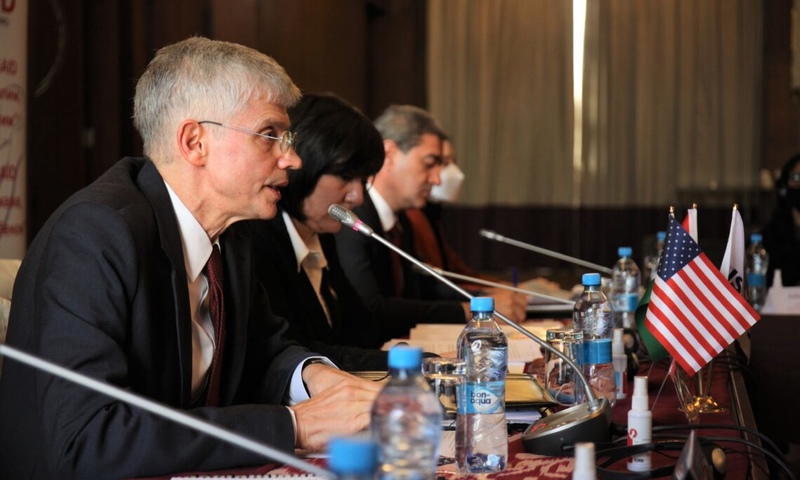
AKIPRESS.COM - U.S. Ambassador John Mark Pommersheim opened a roundtable discussion today on Tajikistan’s efforts to ensure mothers and children have greater access to nutritious food. He was joined by officials from the Ministry of Health and Social Protection of the Population, the Ministry of Industry and New Technologies, Tajik Parliament, UNICEF, World Food Programme, and international and local non-governmental organizations.
This roundtable took place under the rubric of the Scaling Up Nutrition (SUN) movement, of which the U.S. government is a key promoter as a member of the Multisectoral Coordination Council.
To advance Tajikistan’s progress in food fortification, key results of a recent USAID-supported food fortification assessment of the ability of large mills to add fortified nutrients were discussed. The meeting also included a presentation of the Multisectoral Action Plan Performance to Improve Nutrition in Tajikistan for 2021-2025, and introduction of the National Program for the Prevention of Micronutrient Deficiency and Diseases Associated with it in the Republic of Tajikistan for 2022-2027. Participants agreed to establish an inter-sectoral working group to implement these plans.
Micronutrient deficiencies in Tajikistan remain a pressing public health concern. During the meeting, Ambassador Pommersheim noted: “Global experience has shown that large-scale wheat flour fortification is a proven and cost-effective intervention to improve nutrition and reduce micronutrient deficiencies, reduce anemia among women and children, and improve public health outcomes. Fortification of staple foods is a safe way to improve the health of the community.”
The U.S. government, through USAID, is committed to supporting the Food Fortification Initiative.
Tajikistan’s 2019 law on providing the population with fortified food determines the framework for prevention and for implementation of programs to eliminate micronutrient deficiency and related diseases in Tajikistan. USAID will provide technical support to strengthen Tajikistan’s health system and work to influence social norms on nutrition and health care for mothers and children to promote the adoption of healthier behaviors.
